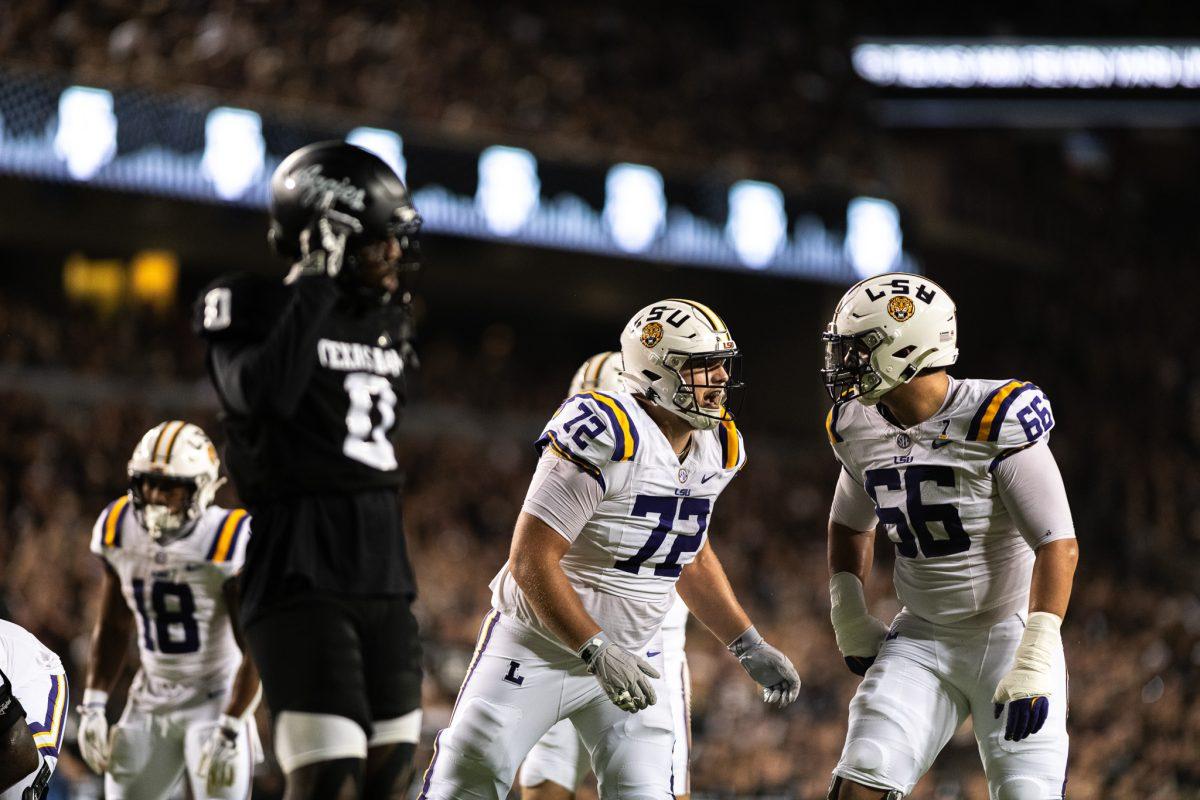The Tigers crossed a huge milestone off their bucket list by making it to the College World Series in Omaha, Nebraska. But of course, the job isn’t finished.
The team’s first step in its quest for a national championship starts on Saturday night against a familiar foe, the Tennessee Volunteers. LSU will take the field against Tennessee on Saturday at 6 p.m. C.T. The game will be broadcasted live on ESPN and ESPN-plus.
While Tennessee is familiar, it’s been a bit since LSU has seen them. The Volunteers came to Baton Rouge for a regular-season series on March 30. In that series, the Tigers took two of three games.
On Thursday, Tennessee head coach, Tony Vitello, announced that Andrew Lindsey will be the starting pitcher against LSU. The Tigers faced Lindsey, but he did not start the game.
Lindsey, a right-handed pitcher, faced the Tigers on March 31, where LSU won 6-4. He did, however, pitch the majority of the game for Tennessee. Lindsey went 4.2 innings, struck out three, and gave up only one run on five hits.
Chase Burns started that game against LSU, in which he gave up five runs on seven hits, but struck out seven in 3.1 innings. Burns has come out of the bullpen as of late rather than starting.
“Burnsy has been incredible out of the bullpen with his stuff and ability to get outs,” Vitello said. “But he has kind of changed our team’s mentality a little bit too much with the emotion he pitches with and having fun out there again as an athlete. But also he gives our guys confidence that the back end of the game is one that we can win each time we go out.”
However, the consistent trend is that Burns comes in relief for Tennessee’s star right-hander, Chase Dollander. According to Baseball America, Dollander is listed as the No. 5 collegiate MLB Draft Prospect.
It was thought that Dollander would get the start in the College World Series opener against the Tigers, but Vitello and the team have found the most success with Dollander in the second spot in the rotation.
“We’ve rolled with what really has got us to this point with Andrew Lindsey first and Dollander second and Beam third.”
Just like on the mound, it’s no secret for who Tennessee looks to for an answer at the plate. Jared Dickey leads the Volunteers with a .325 batting average in 60 games played. He leads the team in RBIs with 51, and has hit 12 home runs on the season.
But similar to LSU, Tennessee’s offense doesn’t just revolve around one player. Griffin Merritt leads the team in home runs with 18 and a .315 batting average, and Christian Moore is right behind with 17 home runs and a .313 batting average. Maui Ahuna leads the team in doubles with 19 and has a .302 batting average.
“I would just kind of say we’re playing good baseball right now. That’s what this team is capable of,” Dickey said. “Finally coming together as a team, it’s allowed us to be comfortable with each other on and off the field, and it’s allowed us to just mesh together and know that we’ve got each other’s backs no matter where we’re at.”
Tennessee is playing some of its best baseball at the most important of times. The Volunteers missed hosting a regional, but they went into the Clemson Regional with an axe to grind. They took down the ACC Champions in Clemson in what some might say was the most thrilling college baseball game of the year. In 14 innings, the Volunteers game away with a 6-5 win over Clemson. They then beat Charlotte 9-2 to win the Clemson Regional.
The Volunteers then traveled to Hattiesburg, Mississippi to take on Southern Miss in the Super Regional round. After dropping the first game 5-3 to the Golden Eagles, they took the next two games 8-4 and 5-0 to punch their ticket to Omaha.
So even though Tennessee is playing some of its best baseball, it’s still beatable. The dynamic of LSU being the second team to beat Tennessee this postseason starts on the mound.
Paul Skenes is the likely candidate to start the College World Series opener against Tennessee. Skenes got the start in the regular season series opener against the Volunteers, and he was dominant as he’s been all season. In 7.0 innings, he struck out 12 and gave up one run on five hits.
“Yeah he was more than solid,” Vitello said. “We finished that weekend off very well on Sunday, but if you date back to Friday or Game 1 of that deal, Skenes was better than us. And I think there’s probably some info in there that we can pull out, and the guys can take some confidence in maybe since we’ve seen him once before.”
If Jay Johnson decides to save Skenes for game two of LSU’s College World Series run, Ty Floyd or Thatcher Hurd could be two possible candidates for the start in the opener.
In LSU’s 6-4 win in game two of its regular season series with Tennessee, Floyd pitched 5.0 innings, struck out five, and gave up four runs on six hits.
However, Thatcher Hurd pitched in LSU’s 14-7 loss in the series finale, and Tennessee seemed to have had a good system down in hitting his pitches. Hurd did not make it out of the first inning, and he gave up six runs on four hits while walking two.
This being said, Skenes may be the most practical option to start for LSU. Not only did he have success against Tennesee the last time he faced them, but he has started in both the regional and super-regional openers. Starting Skenes would give LSU the same type of layout it has been working with this postseason. In addition starting Skenes on Saturday would allow him to be available later next week, if LSU were still in the tournament, for the games that matter most in trying to make it to finals.
Tennessee has been a team that has gotten hot this postseason, but LSU is playing some of its best baseball as well. Of course, it got to Omaha over one of the best No. 2 seeds in the country in Oregon State, and a dark horse SEC team in Kentucky.
According to Vitello, Tennessee isn’t looking to change much of what it has been doing this postseason. If Johnson and LSU choose to take a similar approach headed into the College World Series, it can be enough to continue their momentum deep into the tournament.









